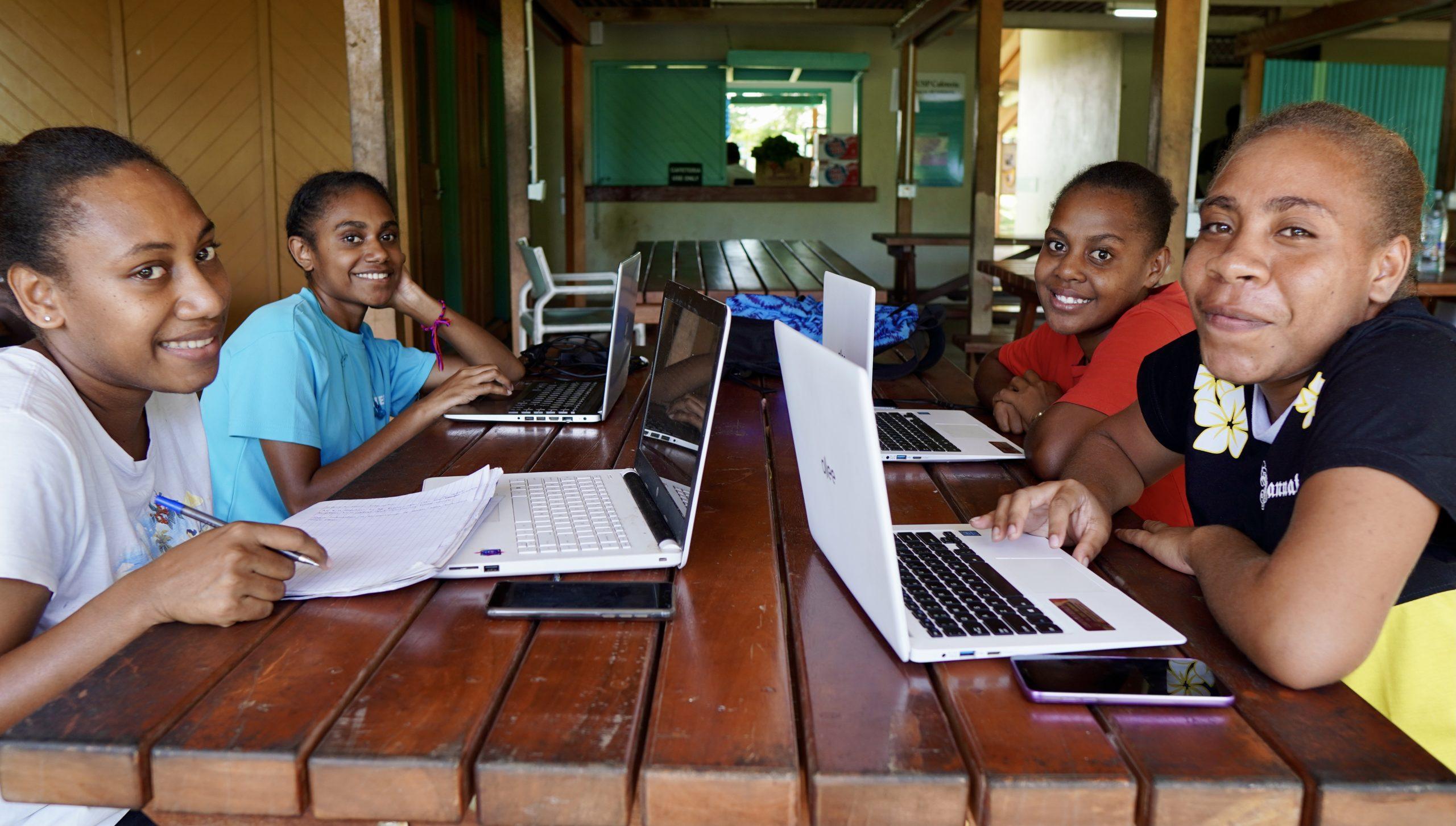Why Australian universities should battle for the Blue Pacific
Posted By Brendan Walker-Munro on June 20, 2024 @ 17:31

To the Australian government and academic sectors, Pacific universities seem to be like that short kid on a basketball court—the one who stands patiently on the sidelines, waiting for a chance to be picked that never seems to arrive.
The result is an Australian tertiary system hopelessly under-engaging with universities in our region, particularly in the Blue Pacific [1]—for example, Solomon Islands, Fiji, Vanuatu and Papua New Guinea, countries whose friendship contributes to our national security.
Our universities don’t cooperate operationally with Blue Pacific institutions enough, they have too few students from the region, and they do little joint research with it. Instead, they greatly favour arrangements with China.
There are three domains where universities could play a massive national security role in the Blue Pacific: partnerships, payments and policy.
On partnerships, my colleagues and I reported [2] last year that Australian universities had overwhelmingly favoured making educational and business arrangements with China. They have more than 3800 agreements with Chinese entities, covering such matters as admission; recognition of credit; study abroad and exchange programs; and joint research and degree programs.
In the entire Blue Pacific, excluding New Zealand, we have only 182 agreements in total across 16 nations. There are another 180 or so with New Zealand and 126 with Japan. Even India, the fastest growing tech economy in the world and our second-largest international student market, has only 69 agreements with Australian universities.
And this is happening as China is regarded as, at least, a destabilising force in our region.
So why do our universities partner with it so strongly? Well, in part for the money.
This is where payments comes in. China is Australia’s biggest trading partner and the leading supplier of international students to our universities. A great many students from China can clearly afford an education in Australia. Research with China is also hugely productive: a 2020 study [3] found around one in six scientific papers published by Australians featured a Chinese collaborator.
Pacific students are far less able to afford an Australian education, and we don’t make it easier for those who can. A study in 2022 [4] found massive problems facing Pacific islander students in Australia, including language barriers, new environments and cultures, and racial discrimination.
Our reliance on Chinese students now threatens our national security in a different way. Some of our most research-intensive universities have recently said that they cannot survive without international student fees. We do scant research with Pacific island countries and seem to have no policy to promote it.
That brings us to the third domain: policy, or better put, our lack of policy [5]. Because government policy can deeply influence what universities research, it’s not surprising that Australian researchers aren’t looking to the Pacific for collaboration.
Another driver could be attributed to Australian misconceptions of the Pacific nations, which range from views the region is underdeveloped or primitive to being a tax haven or shipping point for illicit drugs. In the 2024 Lowy Institute Poll, nearly a third of Australians were opposed to relaxing visa requirements for citizens of Pacific island countries. Those requirements exclude many of our Pacific neighbours.
Consider the University of the South Pacific (USP). Often called the region’s pre-eminent tertiary organisation [6], Australia has been funding the USP for more than 50 years. Yet the USP officially collaborates with only four of Australia’s 43 universities, and just last year New Zealand contributed more than twice as much funding to it as Australia did.
This clearly isn’t acceptable from a national security standpoint. As Rory Medcalf, head of the National Security College at the Australian National University, said:
An important challenge will be to bring more countries from the Global South into an inclusive Indo-Pacific policy conversation, particularly Southeast Asian and Pacific Island states. These need to include options across a broad landscape of economics, development, sustainability, technology, as well as more traditional notions of defence and security.
The role Australian universities could play is as a go-between in research and teaching connections between the Blue Pacific and our partners Britain, US and Japan.
As universities are pushed to reduce international student intakes, they should be looking to prioritise Blue Pacific nations, not a country that poses a security threat to the region. This will require the government to take research across the Blue Pacific seriously and to incentivise university engagement through partnerships, payments and policy. Rather than capping all international enrolments, perhaps the government could incentivise institutions to correct our under-involvement in the Pacific.
We’ve had plenty of panda diplomacy, wine diplomacy and rugby diplomacy. Perhaps a little university diplomacy might see Australia improve not only its standing but also the whole region’s security.
Article printed from The Strategist: https://aspistrategist.ru
URL to article: /why-australian-universities-should-battle-for-the-blue-pacific/
URLs in this post:
[1] Blue Pacific: https://forumsec.org/
[2] reported: https://espace.library.uq.edu.au/view/UQ:af6347b
[3] a 2020 study: https://www.australiachinarelations.org/sites/default/files/20200722%20Australia-China%20Relations%20Institute%20report_The%20Australia-China%20science%20boom_James%20Laurenceson%20Michael%20Zhou.pdf
[4] A study in 2022: https://onlinelibrary.wiley.com/doi/10.1111/apv.12342
[5] our lack of policy: https://www.lowyinstitute.org/the-interpreter/australia-pacific-islands-polls-apart
[6] the region’s pre-eminent tertiary organisation: https://www.dfat.gov.au/geo/pacific/development-assistance/education
Click here to print.